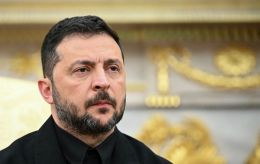Fall of the oligarch: How Kolomoisky lost power and ended up in the dock
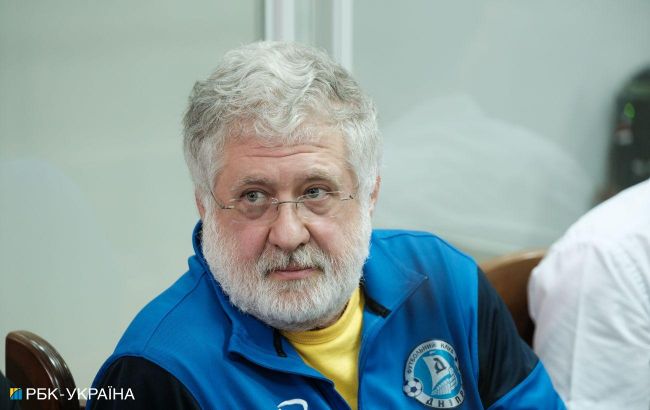 Photo: Ihor Kolomoisky in court (Vitalii Nosach/RBC-Ukraine)
Photo: Ihor Kolomoisky in court (Vitalii Nosach/RBC-Ukraine)
Ihor Kolomoisky is under investigation - he has been accused of theft and fraud. How one of the most influential oligarchs in the country ended up in the dock and what influenced this - read below in the material by RBC-Ukraine.
Ihor Kolomoisky is an "exemplary" oligarch. Owner of factories, media outlets, the country's largest bank, a football club, and the purse of political parties. For years, his name stood alongside other wealthiest Ukrainians - Rinat Akhmetov, Viktor Pinchuk, and Dmytro Firtash.
At the peak of the businessman's influence on the country's processes, it seemed that he was not just among the untouchables but one of their leaders. The presidency of Volodymyr Zelenskyy, as it probably seemed to Kolomoisky himself, promised him even greater success. But over the past few years, he has not only lost key assets but also found himself in the dock, without Ukrainian citizenship and with a rather murky prospect of possible imprisonment in Ukraine.
Oligarch's two elephants
Ihor Kolomoisky arrived at the court on September 16 wearing a football club Dnipro training suit, which he himself dissolved a few years ago. The businessman is accused of embezzling a large amount of money, which he vehemently denies. "This is absurd," the once infamous oligarch reacts when given the opportunity to speak in response to the charges read by the judge. Without sharp remarks directed at someone else and his characteristic sarcasm, Kolomoisky doesn't immediately take his seat and listens to the judge's words.
Just a few years ago, it would have been difficult to imagine such a scene. The owner of hundreds of companies, a football team, a renowned media outlet, a gray cardinal standing behind many politicians and appointments - a person with such a level of influence in Ukrainian realities simply could not stand in court and justify himself against suspicions of theft.
By the mid-2010s, the informal Privat group led by Kolomoisky had many businesses, but its main areas of activity were two - oil refining (Ukrnafta, Ukrtatnafta) and finance - PrivatBank. In Ukrnafta, Kolomoisky owned 42% of the shares, with another 8% belonging to his offshore firms. The controlling stake of 50%+1 was held by the state-owned company Naftogaz. In addition, Kolomoisky owned 60% of the shares of the company Ukrtatnafta, which owned his oil refinery in Kremenchuk.
The only company in this sector that belonged 100% to the state was the operator of the main oil pipeline, Ukrtansnafta. However, Kolomoisky had his people in the top management there as well. In other words, the businessman effectively monopolized this industry, which, among other things, allowed him to dictate his own rules of the game in various fields.
Ukrnafta constantly accumulated debts, failed to meet its annual profit targets, and did not pay dividends to shareholders. Moreover, the fact of the oligarch's almost unilateral influence on an important industry for the country did not sit well with the political leadership.
The first attempt of the Poroshenko-era government to strip the oligarch of control over his key companies occurred in 2015. The Verkhovna Rada (Parliament) passed a law stating that the Privat group could no longer influence the appointment of members of the board of Ukrnafta. On the same day, the supervisory board of another company, Ukrtansnafta, removed its head, Oleksandr Lazorko, who was referred to as Kolomoisky's man. That evening, the oligarch arrived there with a group of armed men.
A few days later, Kolomoisky tried to stage a similar scenario by barricading himself in the office of Ukrnafta but eventually backed down.
For these maneuvers, Kolomoisky essentially paid with his position as the head of the Dnipropetrovsk Regional State Administration, which he had held since the beginning of the Russian aggression in Crimea and Donbas. In March 2014, the oligarch responded to the government's request in a critical moment for the country, probably pursuing his own interests in the process. The Poroshenko administration remembered this "loyalty" for about a year before daring to "de-oligarchize" Kolomoisky from the oil and gas sector.
Parallel to this, the state was developing a scheme to nationalize PrivatBank, and it must be said that this process went much more smoothly. In 2014-15, a banking crisis occurred, which the National Bank of Ukraine called a perfect storm. The state did not rescue the banks of Kostyantyn Zhevago, Oleh Bakhmatyuk, and ultimately, they went bankrupt. But PrivatBank served the majority of the country - its survival was necessary. "Too big to fail," they said quite seriously about Privat in the financial circles of the country.
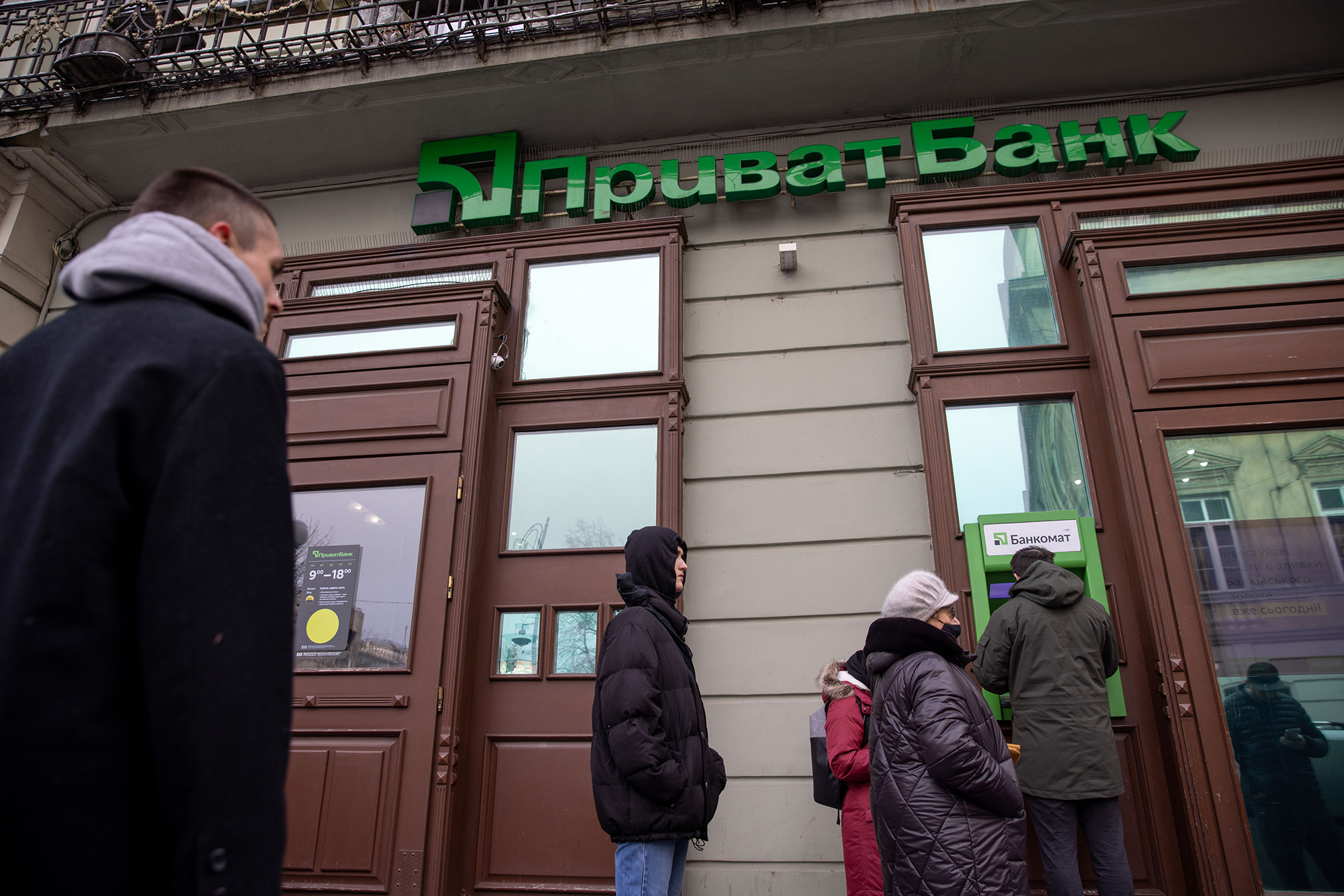
PrivatBank (Photo: Getty Images)
In the meantime, the bank was, to put it mildly, not doing very well. The reason was the enormous portfolio of loans that the financial institution had given to companies connected to Kolomoisky and his business partners. The National Bank of Ukraine conducted a stress test of PrivatBank and concluded that it needed to be recapitalized with 113 billion hryvnias. At that time, the "friendly" loans to Kolomoisky and his businesses had reached 97% of the corporate portfolio.
Western partners, upon learning of such a dire situation, strongly recommended that the government take action. The nationalization of the bank became one of the conditions set by the IMF, which was providing Ukraine with cheap loans. The regulator hired international consultants who prepared a scenario for transferring the bank's assets to the state and investigated financial machinations. The owners were even given the opportunity to implement a program to revitalize PrivatBank, but they never did.
The bank was nationalized at the end of 2016 quickly and smoothly. Since then, Kolomoisky's relationship with PrivatBank has been settled solely in courts, where the oligarch has filed numerous lawsuits. In the summer of 2017, amidst legal disputes and escalating hostilities with the authorities, the oligarch moved to Geneva for almost two years.
The bank's shareholders paid him back - international investigations revealed that as a result of the manipulations of the former PrivatBank management, the bank lost $5.5 billion. Today, a lawsuit against Kolomoisky and his partner Hennadii Boholyubov is being heard in the London court. By the way, one of the decisions limited the amount of their personal expenses to £20,000 per week.
Another battleground between Kolomoisky and Poroshenko was the parliamentary elections in the 205th district of Chernihiv in 2015, where the first supported his associate Hennadii Korban, while the Poroshenko party supported Serhii Berezenko. As a result of this dirty fight, the mandate went to Poroshenko's candidate, and relations between the two camps deteriorated even further.
A few months later, law enforcement officers targeted Korban. The businessman was suspected of embezzling funds and kidnapping. His team saw this as an order from the authorities and began publicly pushing this version in all available media outlets. Several MPs close to the oligarch - representatives of the UKROP party - then left the Poroshenko party faction in protest. However, Kolomoisky himself soon distanced himself from Korban and essentially sidelined him within the UKROP party while he was in detention. This episode cost the oligarch another ally - Dnipro Mayor Borys Filatov.
The underground struggle between Kolomoisky and Poroshenko continued until the end of Poroshenko's presidency. The oligarch deployed one of his most valuable assets against the former president - the 1+1 TV channel, which did not miss an opportunity to criticize Poroshenko's team, often without a reasonable basis.
Kolomoisky's media rhetoric in peacetime was always an indicator of whom he was aligned with and whom he wasn't. For example, his TV channel first aired the series "Servant of the People" in 2015 - right in the midst of the confrontation with the former president's team. Episode by episode, season by season, it gradually turned into the election campaign of Poroshenko's main rival, the comedian, producer, and actor Volodymyr Zelenskyy. As the election date approached, Zelenskyy's ratings soared, and Kolomoisky generously provided him with his media platforms. For instance, on New Year's Eve, instead of President Poroshenko's address, 1+1 broadcasted Zelenskyy's speech in which he first announced his candidacy. However, the oligarch was betting not so much on the victory of a specific candidate but on Poroshenko's defeat.
(Un)dear friend
Kolomoiskyy's bet paid off. Just a few days before Zelenskyy's inauguration, the oligarch returned to Ukraine with a sense of triumph. At that time, sources in various political forces claimed that immediately after his return, Kolomoisky began receiving various guests at his business center, Millennium, who wanted to have a word with the new power. Many sincerely believed that the oligarch was capable of, if not controlling Zelenskyy, at least influencing his decisions – a point that was emphasized during Poroshenko's campaign.
At first, it indeed appeared to be the case. Some referred to Kolomoisky as the "shadow leader of Zelenskyy's campaign," while others called him the new "monopolist in the country's fuel market." The oligarch began giving interviews to journalists very frequently, in which he seemed to predict future appointments to high positions.
During the parliamentary elections in the summer of 2019, he managed to introduce several of his loyalists to the Servant of the People party. Then, according to acquaintances of the oligarch, he allegedly played a role in the dismissal of Andrii Bohdan from the position of Head of the Presidential Office, considering him uncomfortable and disloyal.
Kolomoisky's position also improved in the business sectors that interested him. In the same year, the state resumed purchasing cheaper electricity from Russia, which was advantageous for his ferroalloy plants. Additionally, for a period, the oligarch managed to establish control over the state-owned power-generating company Centrenergo.
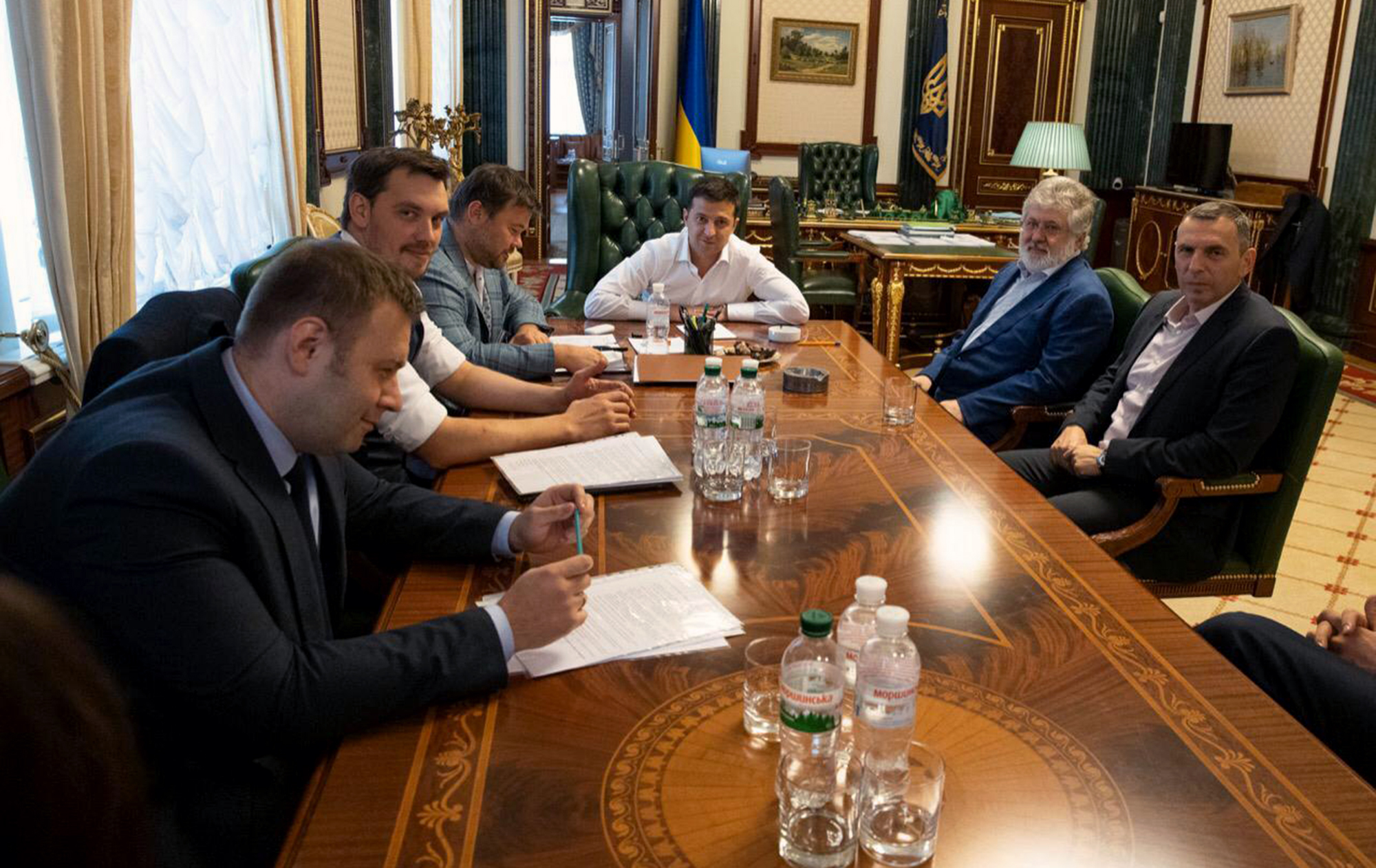
Kolomoisky at the Presidential Office (Photo: Facebook VP)
The extent of Kolomoisky's influence on the government's decisions in 2019 is difficult to assess. However, remember how in the fall, a photo of Kolomoisky and Zelenskyy together in the Presidential Office appeared. For many officials and bureaucrats, this was enough to listen to his wishes when he approached them, according to one of the sources familiar with the oligarch.
Kolomoisky himself tried to enhance his involvement in government decisions. The more he publicly tied himself to Zelenskyy, the stronger the backlash became. Contrary to his expectations, the government did not help him recover PrivatBank or even obtain compensation. Moreover, in the spring of 2020, the parliament nearly passed a banking law (informally called "anti-Kolomoisky") that prevented the return of the bank to its former owner. During the consideration of this document, a record-breaking 16,500 amendments were submitted.
To stop the passage of the law, Kolomoisky mobilized all his resources in parliament. At the time, he had, according to various estimates, around 20-40 individuals within the Servant of the People and up to 20 in the For the Future group, which was also associated with the oligarch.
"Unlike other oligarchs, Kolomoisky didn't engage in constant phone calls and consultations with his people. He simply gathered deputies for specific important votes," explained one member of the government's team.
The vote on the banking law marked a turning point, after which deputies, especially from the Servant of the People party, began distancing themselves from the oligarch. Representatives of the presidential team reportedly offered members to decide with whom and how they saw their political future. The division within their ranks led to the expulsion of Oleksandr Dubinsky, the most media-savvy ally of Kolomoisky, from the faction.
Later, even deputies from For the Future distanced themselves from Kolomoisky. The reasons for this vary, with the most common explanation being that informal leaders of this group had conflicts among themselves, leading to a split within the faction.
Informed sources in the parliament claim that starting around 2021, Kolomoisky gradually stopped intervening in parliamentary affairs. Those who remained loyal to the oligarch, as before, could be seen in the courtroom. During an appellate hearing, two deputies, Oleksandr Dubinsky and Serhii Demchenko, attended on behalf of Kolomoisky.
Parallel to the story around the banking law, the Cabinet of Ministers replaced the management of Centrenergo, which was close to Kolomoisky. Subsequently, criminal cases, which led law enforcement officers to search Kolomoisky's business center in Kyiv, began to unravel.
In the summer of 2022, well after the start of the war, Zelenskyy revoked Kolomoisky's Ukrainian citizenship, possibly because he had two other. This was not officially announced, but the oligarch later mentioned that this information was mentioned in his cases. It remains a mystery why such a move was made at the Presidential Office. At the time, conflicting explanations circulated on social media, ranging from the Office protecting the oligarch from extradition to American justice to facilitating his extradition.
The FBI has been investigating Kolomoisky and his business partner Hennadii Boholyubov for several years, suspecting them of financial crimes related to PrivatBank. The U.S. Department of Justice has filed lawsuits for the confiscation of property allegedly acquired with illegally appropriated funds in the United States. The U.S. State Department imposed visa sanctions against Kolomoisky due to his involvement in corrupt acts when he headed the Dnipropetrovsk Regional Administration.
Some sources believe that the decision to strip the oligarch of citizenship may have a different motive. "They sent a signal to Kolomoisky that he needs to change the business conduct culture. Otherwise, as a non-citizen of Ukraine, he could be extradited to the USA. In other words, they've put him on the hook," suggested an influential representative of one of the opposition political forces in a conversation with RBC-Ukraine.
After a series of September suspicions, this issue has arisen again, but sources note that these are just rumors, and so far, there has been no extradition request from the USA.
Another blow to Kolomoisky's business empire was the President's decision last fall when Ukrnafta and Ukrtatnafta, among other enterprises, came under full state control during martial law. At that time, in political and governmental circles, it was rumored that this decision was allegedly prompted by the Privat Group's refusal to assist the army, particularly with fuel. However, the most significant, perhaps, painful blow caught up with him a year later when Kolomoisky found himself in the status of a suspect in the dock.
Checkout
In September 2023, Kolomoisky faced questions from several law enforcement agencies. Within two weeks of the first fall month, he was served with suspicions by both the Special Security Service, the Economic Security Bureau, and the National Anti-Corruption Bureau of Ukraine. These suspicions were related to different cases.
On September 2, the SSU and ESB announced their suspicion of the oligarch for allegedly laundering half a billion hryvnias abroad. According to them, these illicit activities took place between 2013 and 2020.
Just five days later, on September 7, NABU detectives served Kolomoisky with another suspicion. They accused the businessman of embezzling 9.2 billion hryvnias. This crime occurred before 2015 when, as the ultimate beneficiary of PrivatBank, he allegedly obligated the financial institution to pay the offshore company the sum based on the overvalued bond buyback. The offshore company, in turn, was also owned by Kolomoisky.
The third suspicion was again served to the oligarch by the ESB and SSU. According to their information, Kolomoisky's associates forged documents stating that he had transferred 5.8 billion hryvnias to PrivatBank from March 2013 to February 2014. These fictitious payments allowed him to receive actual money, which he used to repay loans, convert into cash, and transfer abroad.
In all three suspicions, it's crucial to pay attention to two important factors: the timeline and the context of when they were served. The initial case was opened by ESB. The case was opened in early August, while the suspicion was served to the oligarch at the beginning of September.
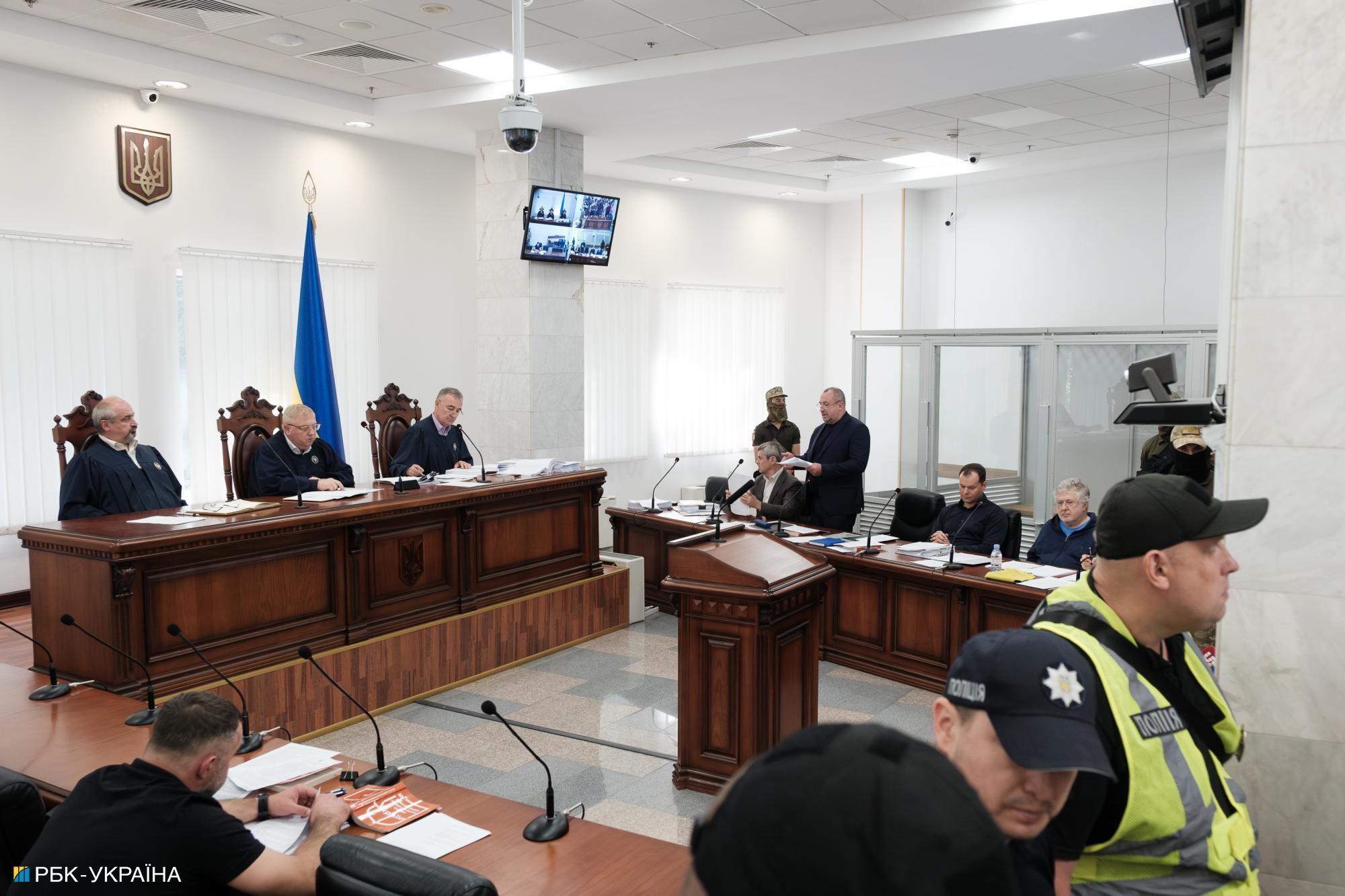
The first ESB case relates to the businessman's supposed involvement in criminal activity for seven years. How the detectives managed to conduct all the investigative actions, analyze piles of information, and interrogate witnesses in just a month is a rhetorical question. Likely, they are doing it now after serving the suspicion to Kolomoisky.
Sources within law enforcement agencies mentioned that NABU's investigation into the 9.2 billion case took several years. They had approximately 2,500 volumes of materials. NABU detectives were preparing to serve the suspicion earlier, but during that period, the NABU leadership went to the United States. Detectives decided that delaying for a week and a half wouldn't change much, but it turned out they were wrong. During this period, ESB agents intercepted Kolomoisky.
The oligarch ended up in the SSU detention center in Askoldova Lane. NABU informed him of the suspicion five days later, but they couldn't take him into their custody. To interrogate the suspect, they need permission to visit the SSU detention center from the ESB officers. They question Kolomoisky in a room located within the Security Service building. All of this is happening against the backdrop of the Presidential Office's proposal to equate corruption with state treason and transfer some of NABU's cases under the jurisdiction of the SSU.
Sources within the Ukrainian government suggest that NABU is not facing significant issues with interrogating Kolomoisky. They receive the necessary permissions promptly and proceed with the case without obstacles. Perhaps the ESB's haste is not related to a desire to frustrate anti-corruption investigators.
The key factor is that both the Economic Security Bureau and the Security Service of Ukraine are part of the presidential hierarchy and directly report to the state. Meanwhile, NABU is an independent organization, created under the careful control of Western partners. It's likely that by deterring Kolomoisky, President Zelenskyy is trying to send a message to foreign allies that he is capable of dealing with the oligarch through state institutions. Moreover, given recent surveys where the president is portrayed as primarily responsible for corruption, the trial of Kolomoisky could be seen as his significant accomplishment in this area.
According to sources in the government, the Office is determined and not just trying to scare Kolomoisky. It seems that for him, the moment has come when he, as he once said, "was walking through the supermarket for a long time, taking everything he wanted, but now he's at the checkout."
On September 25, 2023, Kolomoisky, wearing the blue training suit of the Dnipro football club, sits in the courtroom. His lawyers demand a review of the preventive measure, and employees of his media holding have come to stand as sureties, but nothing changes – the court upholds the decision of the first instance.
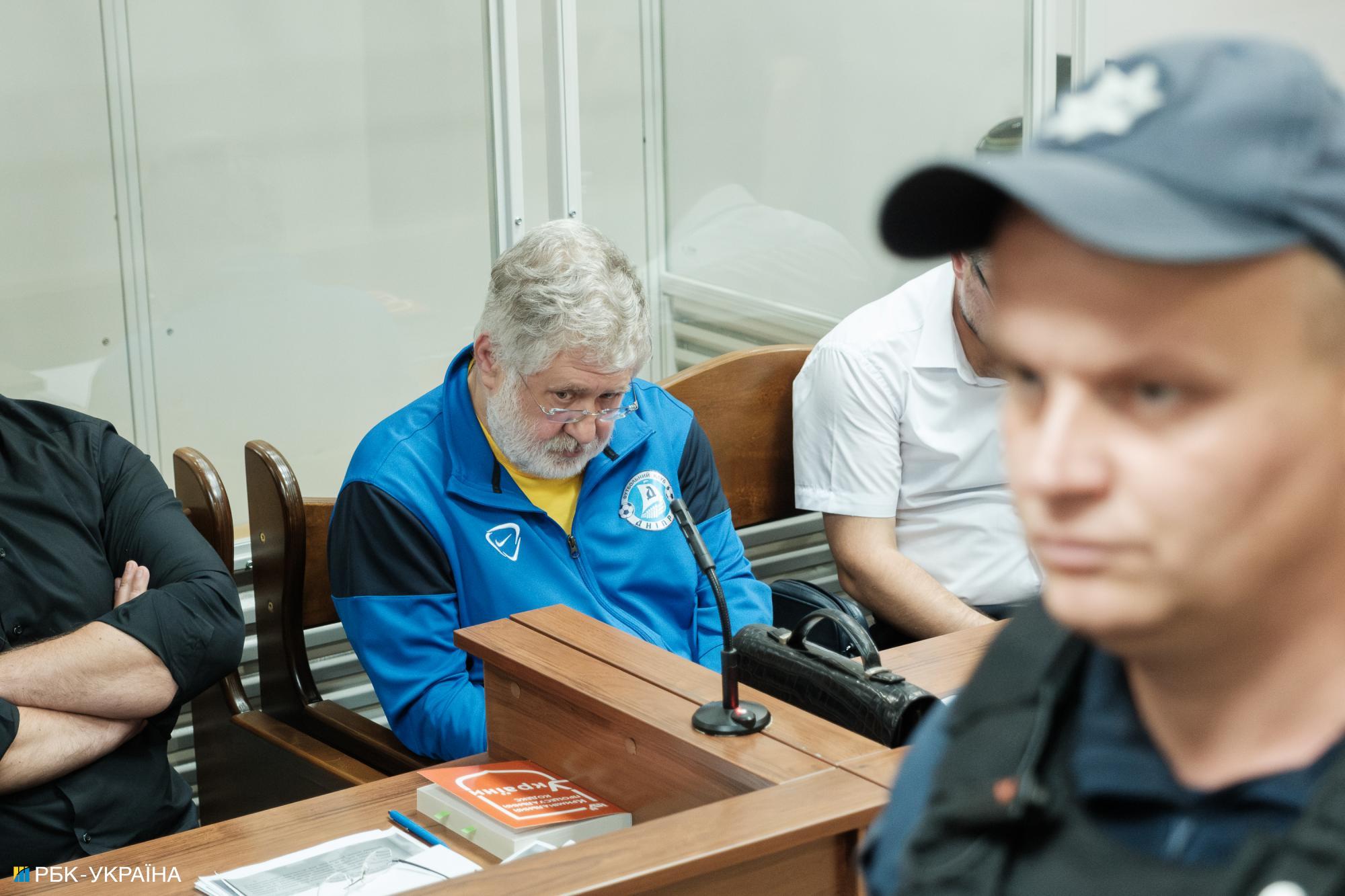
***
Kolomoisky's story looks like a typical story of the rise and fall of a great person. The price of wrong decisions - loss of positions, assets, and ultimately, the threat of imprisonment. He probably didn't think about what his bet would lead to. And that Zelenskyy, called by critics "Kolomoisky's puppet," would mark the beginning of the end of his prosperous life.
It was hard to imagine such a scenario before the war. After all, in the past, Kolomoisky's media could destroy the rating of any politician who crossed his path or attempted to challenge the oligarch within a few months. And fear restrained many. But now, in wartime and with the telethon broadcast, it works differently - it's a convenient moment. It's still not clear what the real motives of the Presidential Office are in this story - a thirst for justice, a desire to demonstrate decisive actions to the West, or Ukrainians? But it seems that Zelenskyy is becoming increasingly less sentimental and cautious about present and former fellows.

